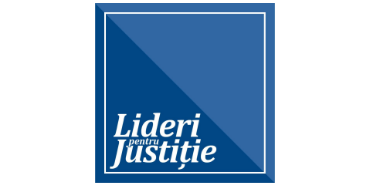paper for the Civil Society Forum, “20 years after,” organized by CEE Trust in Bratislava, 2009
Background
In early 1990, in just about the last weeks of my military service (I’d been drafted just a few months before the anti-communist revolution of 1989), Romanian TV went up in flames over some terrifying footage of HIV-positive children held in terrible conditions at the gruesome castle of a former nobleman, in a remote location of the Romanian North-West. I was only 18 and a half, and that was the first time I heard about civil society organizations coming over from Western Europe, with truckloads of humanitarian aid—food, medicine, clothes—to help the children, as well as seniors and adults, of a country whose rulers kept them famished, diseased and poorly clothed during decades of communist rule. On 26 June 2008, during an NGO-sponsored debate over the need to reform the Romanian Constitution, the former President Emil Constantinescu (1996-2000) blamed domestic civil society for the shortcomings of the current state of affairs, outlining the stark contrast between the civic activists’ situation during the communist regime and after: Then, they were very few in numbers, and had no tools, no laws, no resources, but still achieved radical change; now, they are quite a lot, have all the necessary instruments at their disposal, but achieve nothing! I was shocked, and I felt wronged, because for the past ten years I’d been involved with Romanian civil society, affiliated to several NGOs, and even representing those involved in the fight against corruption on the National Integrity Council; because I believe that my actions of the past 10 years brought about change; because I do not feel we are so many, just as I do not think we have all the instruments we need… The question, then, is obvious: Against what standards and/or benchmarks should we measure success in civil society? Why are perceptions so different—at least between myself and the President?
photo source: George Ene, at CSF, Session 2, Bratislava, 2009
Controversy
In his speech of June, President Constantinescu clearly stated that:
All misfits of the intellectual elite and civil society can be traced either to vested interests, to lack of vision or to intellectual laziness, that [generally] prevents the members thereof from being informed and knowledgeable about the things they discuss and debate. For 18 years, our civil society has obsessed with politics! Why? Because of its own ineptitude! It’s easy to blame politics for not achieving things that civil society itself should have done. [...] I must tell you—if an objective judgment is in order—that politicians achieved, in 18 years, NATO and EU integration, the transformation of the economy. What has civil society achieved? The model of the lesser evil, types of pathetic debates, the creation—unique to Romania—of a lip-service press, unacceptable anywhere else in the free world. Hence, [in my opinion] Romanian civil society regressed, being weaker now than in communist times [...]. Having a civil society that pays tribute to political leaders, displays obedience to political power, or acts cowardly in relation to political institutions, is much more embarrassing, since there’s no [authoritarian] pressure.
And this speech helped me identify more clearly some of the goals of civil society, from the early 1990s: Civic activists were set to remove all pressure from fundamental freedoms and the ability of Romanian citizens to actualize, and benefit from, those freedoms—association, expression, and private initiative, at the very least!
Frustration with the old goals makes them still relevant today! Many Romanians still harbor the feeling that private initiative had been captured, since the early days of the 1990s, by exponents of the communist regime. They had connections, information, and managerial skills unavailable to the majority of the population, hence they’ve become the first “class” (cohort) of Romanian entrepreneurs, regardless of whether legitimate or not. They have easily grasped the potential benefits of association in political parties, and are reported to have infiltrated the ranks of all political movements. While consolidating their economic interests with shallow political legitimacy, they have also pursued freedom of expression in effectively emasculating any and all efforts at promoting lustration. To me, this process looks like a perfectly sound (albeit ruthless) behavior that takes advantage of a chaotic environment, in order to promote individual prosperity at the cost of a placid, naïve and immature public. Of course, I hate the fact that we let it happen! At the same time, however, this brief account may bring about an explanation as to why civil society is so obsessed with politics. And, in understanding the need of those “illegitimate” entrepreneurs for economic prosperity and security, it becomes crystal clear why their front-end politicians actually achieved NATO and EU integration, as well as the transformation of the economy.
Protracted Problems
As for civil society, per se, one can always look back, and try to learn from past mistakes… Who knows?, maybe the following inventory of problems that affected the growth of Romanian civil society would help us take on the challenge, and redirect our efforts towards a new change, towards finally achieving those original goals in the next decade. Let’s take a look, first of all, at association: Reportedly, tens of thousands of NGOs have been established during the 90’s but less than 25% thereof appear operational, when consulting the balance sheets submitted to fiscal authorities. Then, if I were to report on the number of effective NGOs that cater to the needs of issue-constituents or society at large I’d say it’s little over 200.* From this perspective, then, one may easily differentiate the drives for association. On the one hand, the external drive appears strongest: many NGOs were established in order to make use of potential tax breaks, to serve as cover for (marginally legal) commercial activities, to support underground political/electoral schemes. Indeed, most of them died out, in the meanwhile. On the other hand, quite a number of NGOs were established in order to take advantage of donor programs that injected sizable amounts of money into the Romanian economy. Many such “nonprofit entrepreneurs” withered away, being incapable of recognizing their links to a social segment, of focusing on serving the identified needs thereof, or simply of building a constituents base and of consolidating their value added in specific communities.
Let’s assume the 200+ effective NGOs truly mirror freedom of association in Romania—the majority thereof operates at local or regional level within Romania, catering to the needs of very specific social and/or professional groups, while some 20 NGOs are extremely visible at central level. These NGOs, in turn, peruse freedom of expression to promote the views of their constituents, advance hot topics on the public agenda, contribute to shaping policies—indeed participate in governance, at all levels of government. Many politicians challenge them on grounds of representativity, often times missing the point that numbers of voters cannot compare to constitutional rights—while an MP may have an electoral base of 50-100,000 voters, an NGO of “only” 5-50 members has an issue base of 20+ million right-bearers. Under these circumstances, courting a political leader that champions (for individual reasons) the cause of a particular NGO becomes an advocacy technique that should not be mistaken as lip-service, obedience or cowardice. Leaders and champions come and go, but the cause is there to stay! Indeed, to the naked eye, perceptions may be deceiving, and some NGOs may appear to have polarized the political inclinations of civil society, to have softened the tone towards some institutions, to have simply sold out to the highest bidder. But recent reforms in public management, decentralization, procurement, child protection, human trafficking, domestic violence, anti-corruption, justice, even elections, owe a great deal of gratitude to issue-based NGOs that had set the agenda, formulated policy alternatives, influenced decisions and ensured proper implementation.
What about private initiative, then, will you ask? A great number of these 200+ NGOs had to diversify their fund-raising techniques, in order to consolidate their budgetary needs. Income-generating activities that bring about 25-30% of an NGOs annual budget truly represent a breakthrough for the Romanian nonprofit sector. The financial stability of their core operations, based on perfectly independent activities, reinforce the NGOs ability to pursue their mission and strategic objectives, as well as their involvement in governance. More interesting, the income-generating services that these NGOs perform actually cater to the needs of specific stakeholders, at the same time reinforcing their ability to gather relevant information, consolidating their credibility and legitimacy, supporting their capacity for effecting institutional change in relation to public authorities. Public support for such activities is growing, and NGOs benefit both from public and private money, either via subsidies for servicing marginal groups, or via corporate social responsibility programs. Essentially, then, things are quite rosy for these 200+ NGOs, and I can sense your perplexity as to where are the problems of the Romanian civil society, or why are the original goals still relevant, 20 years later? I just argued that fundamental freedoms such as association, expression and private initiative are going quite well for a small number of NGOs—the challenge is to understand why this proportion is so small, at less than 1% of the total number of registered NGOs?
Challenges Ahead
Trust—social and/or public trust—is, probably, the greatest challenge for the Romanian civil society. Although opinion polls point to a constant increase of the public trust in NGOs, civil society still lags far behind the church and the army. Social capital is extremely low in Romania, very few people being able to trust their fellows with solving matters related to education in local schools, health-care in neighborhood hospitals, security in community police, garbage collection and sewerage in residential areas, etc. Paternalism, as instilled by decades of communist rule, and maintained by current politicians with vested interests, enforces an expectation that public administration is exclusively responsible for solving the problems. An attitude of learned helplessness in relation to public authorities—caused by, and/or entrenched with, a lack of responsibility—is quite pervasive at all levels of government. Thus, ordinary people look with caution, even suspicion, at the most active citizens and their “odd” NGOs. As a consequence, very few people feel the drive to associate in order to solve specific problems, and even fewer actually take the initiative to act upon that drive, get involved and express their opinion. Thus, the number of “genuine” citizens, truly involved in public affairs, who choose to experience trusting one-another, delegating tasks and contributing their own resources, is low—not as low as President Constantinescu evoked in reference to communist times, but not large enough to form the critical mass needed to finally achieve the original goals of the early 1990s.
Last, but not least, due to minimal numbers of people involved in civil society organizations and activities, Romanian NGOs face a different challenge, namely elite fatigue. The leadership of the 20+ highly visible NGOs active at central level has not changed a great deal during the past 10 years. As long as leaders do not change, ideas and objectives are unlikely to evolve—leaders, and organizations alike, tend to become entrenched in seemingly everlasting problems, in rather dubious crusades, in one-size-fits-all solutions. In the absence of elite rotation, some NGOs lose credibility, being easily dubbed as “one-man show-offs,” the public getting bored with the same figure, the same topics, the same vocabulary, the same message. Of course, with little public trust and minimal involvement, there’s no room for NGO leaders to grow; in turn, without a selection base, current leaders simply cannot be replaced with equally capable, versatile and articulate challengers. Consequently, quite a few NGOs face internal governance difficulties, especially when the leadership’s advocacy efforts appear to associate the public image of the organization with one of the political parties. The extreme tensions on the political scene, especially in the eve of the November parliamentary elections, with the three major political parties recruiting potential candidates from all walks of life, currently place the most visible Romanian NGOs in a state of dire fragility. Whether, and how many, of these NGOs will collapse after the next elections is a question that still awaits an answer—a cruel answer that will teach us all a lesson in leadership, trust, initiative, expression and association.
Food for Thought
Now I know why I don’t always feel comfortable within the ranks of Romanian civil society—I think I managed to pinpoint, for me and for you, what might be wrong, where the inconsistencies lie. Of course, I share in the larger concern regarding the fragility of the Romanian NGO sector. I do not fully share President Constantinescu’s opinions, but I am now more aware of the problems lying ahead, as well as of the causes. Many more of us will learn valuable lessons from this retrospective, and will start working with the causes, in order to fix the problems. Actually, I trust that many fellow activists from the NGO sector already share my views—I am quite sure we will meet, and start exploring solutions, if not for the entire NGO sector, at least for the organizations where I am a member. When concerns meet awareness, and trust joins the problem-solving effort, there is hope for the Romanian civil society—hope in the ability to finally achieve the original goals of the early 1990s, as well as hope in the capacity to identify new goals and formulate new missions! Good luck, to all of us!
Explanatory note:
*) In February 2009, based on a number of comments from Mr. Valentin Burada of FDSC, I conceded that all figures in this text should be scaled up from the order of 2 to that of 5, since 500+ effective NGOs, and 50+ highly visible ones, are more accurate estimates. Subsequent research put the total number of Romanian NGOs at 62,680, as of 20 January 2010 (Figure 3, page. 21).







